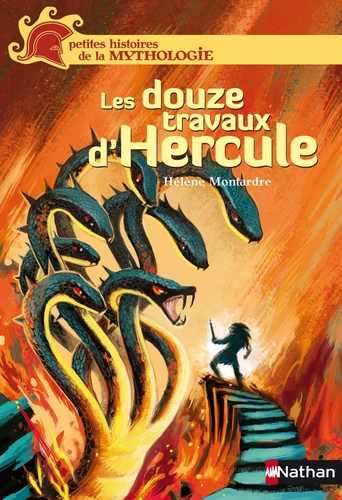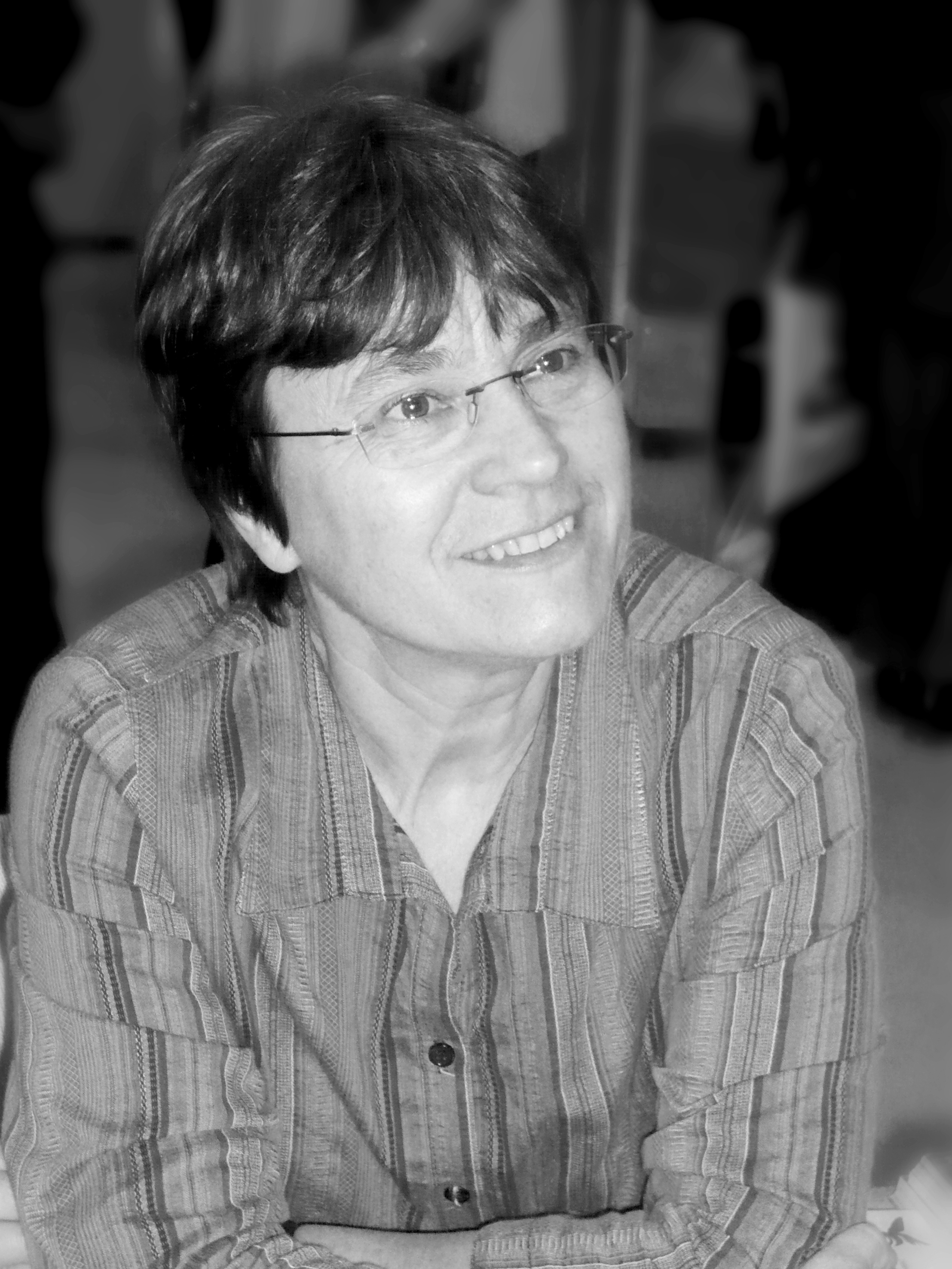Title of the work
Country of the First Edition
Country/countries of popularity
Original Language
First Edition Date
First Edition Details
Hélène Montardre, ill. Nicolas Duffaut, Les douze travaux d’Hercule [The Twelve Labours of Hercules], "Little Stories from Mythology [Petites histoires de la mythologie]" 5. Paris: Nathan, 2011, 62 pp.
ISBN
Genre
Retelling of myths*
Target Audience
Children (9 years +)
Cover

Courtesy of the publisher.
Author of the Entry:
Elżbieta Olechowska, University of Warsaw, elzbieta.olechowska@gmail.com
Peer-reviewer of the Entry:
Lisa Maurice, Bar-Ilan University, lisa.maurice@biu.ac.il

Courtesy of Univers Jeunesse – Nathan – Syros – Pocket Jeunesse.
Nicolas Duffaut
, b. 1977
(Illustrator)
Born in 1977 in Aubenas, in the Ardèche region, he studied illustration at the Émile Cohl School in Lyons where he received his diploma in 2002. Since, he has been working as illustrator for a number of publishers, namely Bayard, Magnard, Flammarion, Milan jeunesse, Nathan, Sarbacane et Tourbillon. He also works for YA press. Among his illustrations connected to Antiquity are Homer’s Illiad and Odyssey:
L’Odyssée d’Homer, illustré par Nicolas Duffaut. Paris: Nathan, 2009
L’Iliade d’Homer illustré par Nicolas Duffaut, Folio Junior. Paris: Galimard Jeunesse, 2014.
Sources:
Profile at the editions-sarbacane.com (accessed: June 3, 2018);
Profile at the babelio.com (accessed: June 3, 2018);
Blog (accessed: June 3, 2018).
Interview on YouTube. Uploaded by Librairie Grangier, Illustrateur talentueux, Nicolas Duffaut nous parle de lui et de son travail (accessed: June 3, 2018).
Bio prepared by Elżbieta Olechowska, University of Warsaw, elzbieta.olechowska@gmail.com

Portrait, courtesy of Univers Jeunesse–Nathan–Syros–Pocket Jeunesse.
Hélène Montardre
, b. 1954
(Author)
Born in 1954 in Montreuil, in a family with origins in the Forez Mountains. Because of her father’s occupation (the writer Georges Montforez, 1921–1974), during her childhood and adolescence she frequently moved and lived in many different places: Saint-Étienne, Marvejols, Nantes, Loudun, Issoire. She studied English at the University of Clermont-Ferrand, where she obtained her PhD (L’image des personnages féminins dans la littérature de jeunesse française contemporaine de 1975 à 1995. Lille: Presses universitaires du Septentrion) in 1999. For the last forty years or so, she has lived with her family in the Haute-Garonne, Occitanie. During the last decade, she wrote a number of books based on a variety of Greek myths, with illustrations by Nicholas Duffaut; the books appeared in two series published by Nathan and called: Petites histoires de la mythologie and Contes et légendes jeunesse.
She has written over fifty books, mainly for children and received many literary awards:
- 1995 2nd prize for roman jeunesse du Ministère de la Jeunesse et des Sports;
- 1998 Price Livrami of the city of Pithiviers;
- 2003–2004 Price Tatoulu ;
- 2004 Price Livre, mon ami, New Caledonia;
- 2007 Price of the City of Cherbourg-Octeville, XVIIIe Livre d’Or des Jeunes Lecteurs Valenciennois, Price Ruralivres en Pas-de-Calais, Price Latulu des collégiens du Maine-et-Loire;
- 2007 and 2008 Price of Readers’ Spring, Narbonne, 2007–2008 Literary price of the Montagnes d’Auvergne;
- 2008 Price Jasmin, Agen, Price Trégor ados, Price Livrentête Culture et Bibliothèques Pour Tous, category Junior Novel.
Chronological bibliography of Hélène Montardre’s books related to classical antiquity
Non-fiction
- Hélène Montardre. L’Empire romain, Les Essentiels Junior. Toulouse: Milan, 2004.
- Hélène Montardre. La Grèce ancienne, Les Encyclopes. Toulouse: Milan, 2004.
- Hélène Montardre. La mythologie grecque, Les Encyclopes. Toulouse: Milan, 2008.
Series Petites histoires de la mythologie
- Hélène Montardre, Nicolas Duffaut, ill. Dans le ventre du cheval de Troie. Paris: Nathan, 2010.
- Hélène Montardre, Nicolas Duffaut, ill. Orphée aus Enfers, Paris: Nathan, 2013.
- Hélène Montardre, Nicolas Duffaut, ill. Les douze travaux d’Hercule. Paris: Nathan, 2011.
- Hélène Montardre, Nicolas Duffaut, ill. Zeus le roi des dieux. Paris: Nathan, 2013.
- Hélène Montardre, Nicolas Duffaut, ill. Héphaïstos et l'amour d'Aphrodite. Paris: Nathan, 2013.
- Hélène Montardre, Nicolas Duffaut, ill. Thésée contre le Minotaure. Paris :Nathan, 2013.
Series Contes et légendes jeunesse
- Hélène Montardre, Nicolas Duffaut, ill. Persée et la Gorgone. Paris: Nathan, 2010.
- Hélène Montardre, Nicolas Duffaut, ill. Jason et la Toison d'or. Paris: Nathan, 2011.
- Hélène Montardre, Nicolas Duffaut, ill. Le labyrinthe de Dédale. Paris: Nathan, 2011.
- Hélène Montardre, Nicolas Duffaut, ill. Ulysse et le Cyclope. Paris: Nathan, 2011.
- Hélène Montardre, Nicolas Duffaut, ill. L'enlèvement de Perséphone. Paris: Nathan, 2012.
- Hélène Montardre, Nicolas Duffaut, ill. Achille le guerrier. Paris: Nathan, 2012.
- Hélène Montardre, Nicolas Duffaut, ill. Pégase, l'indomptable. Paris: Nathan, 2012.
- Hélène Montardre, Nicolas Duffaut, ill. Prométhée, le voleur de feu. Paris: Nathan, 2012.
- Hélène Montardre, Nicolas Duffaut, ill. Apollon, le dieu dauphin. Paris: Nathan, 2015.
- Hélène Montardre, Nicolas Duffaut, ill. Les monstres de l'Odyssée. Paris: Nathan, 2016.
- Hélène Montardre, Nicolas Duffaut, ill. Hermès Le dieu aux mille dons. Paris: Nathan, 2017.
Source:
Website of the Maison des écrivains et de la littérature (accessed: June 26, 2018).
Bio prepared by Elżbieta Olechowska, University of Warsaw, elzbieta.olechowska@gmail.com
Summary
Hercules drinks to excess at a feast and temporarily loses his reason. Without realizing what he is doing, he takes his bow and shoots his wife Megara and his three children, and then he falls asleep on the floor. When he wakes up, he is terrified and cannot understand what happened. Somebody explains that it was a madness sent by Hera as her revenge for Zeus’ infidelity with Alcmene, Hercules’ mother. The devastated Hercules travels to Delphi to seek advice from the Oracle. The answer tells him to go to Tiryns and, as a penance, accomplish all tasks that his cousin, King Eurystheus, would demand of him. The King is scared of Hercules and tries to invent impossible challenges to keep Hercules busy and far away. Contrary to Eurystheus’ expectations and his cousin’s hostility, Hercules performs the most difficult tasks successfully. Once his indenture is over, Hercules still remembers and regrets his murdered wife and children, but through his labours, he learned to live with his regrets and became fully aware of his identity.
Like all books in the series, it includes at the end a short informative section entitled: Pour en savoir plus [To learn more about it].
Analysis
The story of Hercules’ madness and the twelve labours he must perform to expiate his crime is presented in a version modern children would understand and accept. The reason for his temporary insanity is excessive drinking leading to a loss of his faculties, not just ordinary alcohol abuse, but a true madness sent by a jealous woman, the goddess Hera. As presented in the book, the story is one of the tragic consequences of substance abuse, the cruelty of fate, and long and arduous redemption. Hercules is a victim of a goddess’ hostility and a lapse of judgement, who puts all his efforts into atonement for the horrific consequences of this lapse. Next to the story of adversity, despair, guilt and penance, the myth presents a series of adventures and achievements attractive for young readers and teaches them that even the worst personal tragedy can be overcome through determined efforts but never forgotten. Hercules represents here a different archetype from his frequent cartoon variation, the testosterone-driven strongman.
The book is addressed to contemporary children who can relate it to today’s reality, but for those interested in the mythological details, it provides the required data at the end.
Further Reading
Haslem, Wendy, Angela Ndalianis and Chris Mackie, eds., Super / Heroes. From Hercules to Superman, Washington, DC: New Academia Publishing, 2007.
Lowe, Dunstan and Kim Shahabudin, eds., Classics for All: Reworking Antiquity in Mass Culture, Newcastle-upon-Tyne: Cambridge Scholars Publishing, 2009.
Prince, Nathalie and Sylvie Servoise, eds., Les personnages mythiques dans la littérature de jeunesse, Rennes: Presses Universitaires de Rennes, 2015.


